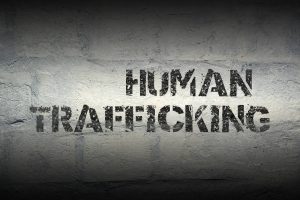As immediate relief needs are assessed in the wake of the devastating earthquake in Chile, many Americans are looking for ways to help by donating to a charity. The Better Business Bureau Wise Giving Alliance warns that—as occurred following the tsunami in 2004 and Katrina in 2005—fraudulent charities will likely emerge to try and scam donations from well-meaning Americans.
“Whenever there is a major natural disaster, be it home or abroad, there are two things you can count on. The first is the generosity of Americans to donate time and money to help victims, and the second is the appearance of poorly run and in some cases fraudulent charities,” said Art Taylor, President and CEO of the BBB Wise Giving Alliance. “Not only do Americans need to be concerned about avoiding fraud, they also need to make sure their money goes to competent relief organizations that are equipped and experienced to handle the unique challenges of providing assistance.”
BBB Wise Giving Alliance offers the following six tips to help Americans decide where to direct donations:
Rely on expert opinion when it comes to evaluating a charity
Be cautious when relying on third-party recommendations such as bloggers or other Web sites, as they might not have fully researched the listed relief organizations. The public can go to www.bbb.org/charity to research charities and relief organizations to verify that they are accredited by the BBB and meet the 20 Standards for Charity Accountability.
Be wary of claims that 100 percent of donations will assist relief victims
Despite what an organization might claim, charities have fund raising and administrative costs. Even a credit card donation will involve, at a minimum, a processing fee. If a charity claims 100 percent of collected funds will be assisting earthquake victims, the truth is that the organization is still probably incurring fund raising and administrative expenses. They may use some of their other funds to pay this, but the expenses will still be incurred.
Be cautious when giving online
Be cautious about online giving, especially in response to spam messages and emails that claim to link to a relief organization. In response to the tsunami disaster in 2004, there were concerns raised about many Web sites and new organizations that were created overnight allegedly to help victims.
Find out if the charity has an on-the-ground presence in the impacted areas
Unless the charity already has staff in the effected areas, it may be difficult to get new aid workers to quickly provide assistance. See if the charity’s website clearly describes what they can do to address immediate needs.
Find out if the charity is providing direct aid or raising money for other groups
Some charities may be raising money to pass along to relief organizations. If so, you may want to consider “avoiding the middleman” and giving directly to charities that have a presence in the region. Or, at a minimum, check out the ultimate recipients of these donations to ensure the organizations are equipped to effectively provide aid.
Gifts of clothing, food or other in-kind donations
In-kind drives for food and clothing—while well intentioned— may not necessarily be the quickest way to help those in need – unless the organization has the staff and infrastructure to be able to properly distribute such aid. Ask the charity about their transportation and distribution plans. Be wary of those who are not experienced in disaster relief assistance











Leave a Comment
You must be logged in to post a comment.